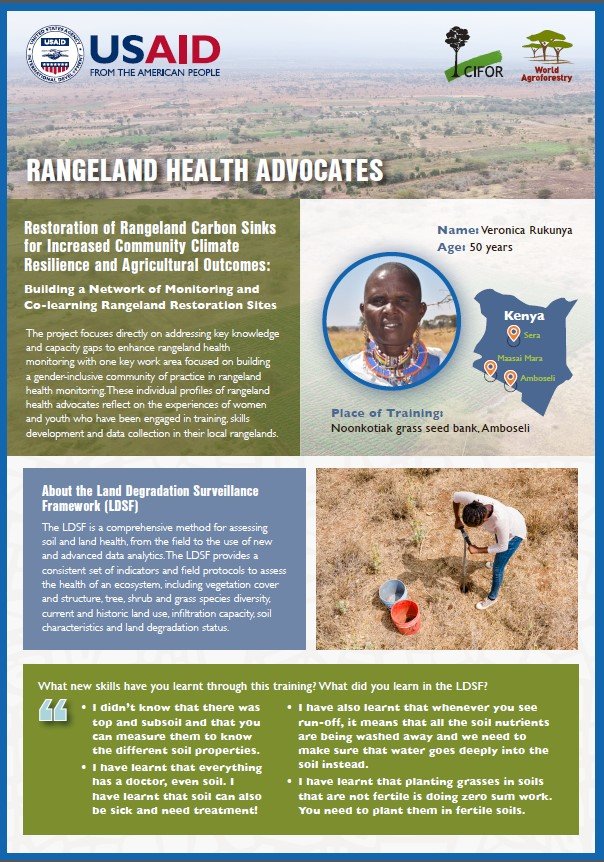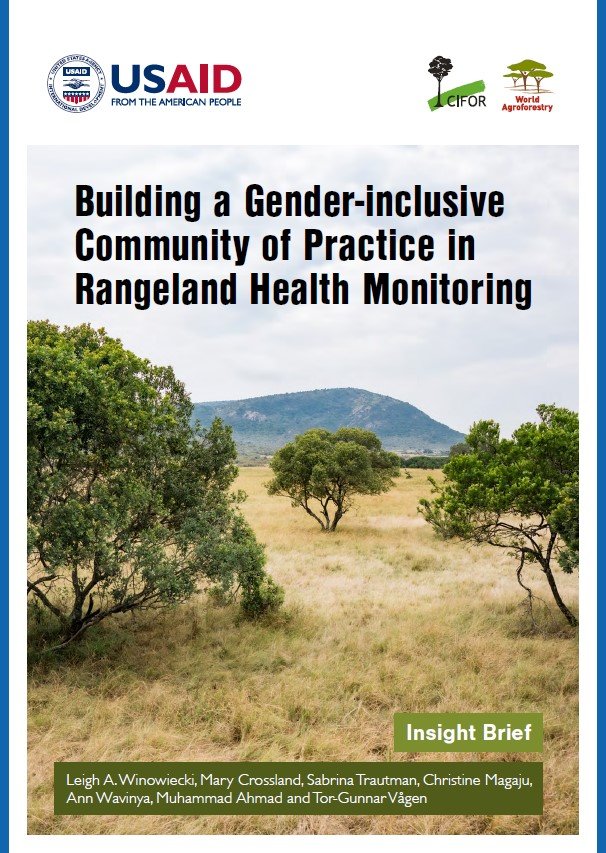Resource Library
Feature Resources
From Roots to Riches: Priority Policy and Investment Decisions for Grasslands and Savannahs
Clarifying and communicating the values of grasslands is essential to catalysing increased conservation, restoration and sustainable management. Grasslands and savannahs face significant and widespread threats from multiple fronts and are an underacknowledged ecosystem in the minds and imaginations of people around the world. The report reflects a growing recognition and commitment to grassland and savannah conservation within WWF and partners, due to their critical roles in food security, biodiversity, ecosystem services and human cultures. It contributes to momentum building towards the International Year of Rangelands and Pastoralists and the next Conference of the Parties of the UN Convention to Combat Desertification (UNCCD) in Mongolia, both in 2026. This report aims to help governments to develop ambitious yet realistic conservation strategies for these critical ecosystems and inform private sector initiatives and finance.
Regional Policy Coherence for the Great Green Wall Initiative: Soil Health as the Foundation to Realising the Ambitions of the Great Green Wall Initiative (ENG & FR)
Healthy soil is the foundation of resilient landscapes, sustainable food systems, and climate adaptation in Africa’s drylands. As a unifying element across climate, nutrition, biodiversity, and restoration agendas, soil health plays a critical role in realising the ambitions of the African Union’s Great Green Wall Initiative (GGWI). With over 65% of productive land degraded and soil erosion undermining agricultural productivity, smallholder farmers across the continent face compounding vulnerabilities. The GGWI Strategy (2024–2034) recognises soil health as central to reversing land degradation and building long-term resilience, aligning closely with the Africa Fertiliser and Soil Health Action Plan (AFSH-AP) (2023 – 2033) and broader goals outlined in the Ten-Year Comprehensive Africa Agriculture Development Programme (CAADP) Strategy and Action Plan (2026-2035).
Delivering nature-based solution outcomes by addressing policy, institutional, and monitoring gaps in forest and landscape restoration (Research Summary Brief)
Under the UK PACT funded project ‘Promoting nature-based solutions for land restoration while strengthening the national monitoring technical working group in Kenya’, CIFOR-ICRAF have undertaken practical training sessions with various stakeholders on using the Regreening App, a citizen science data collection initiative that enables farmers, government agents, project officers and implementors to track and provide evidence of restoration practices on the ground by reporting data on key indicators of land restoration.
This knowledge brief seeks to outline uptake of the Regreening Mobile App following two three-day practical workshops attended by a range of multi-disciplinary participants.
PRESENTATION | Positioning Soil Health on the Agenda Bridging Science, Policy and Advocacy
On 27 May 2025, the Vision for Adapted Crops and Soils (VACS) and CA4SH co-hosted a webinar exploring the role of multi-stakeholder action in addressing financing, implementation, and knowledge barriers to scaling soil health solutions.
Healthy soil is the very foundation of our food systems and provides several vital ecosystem services, from carbon sequestration to improving food and nutrition security, to regulating the water cycle to hosting biodiversity. However, land degradation negatively impacts over 3.2 billion people globally. This webinar highlighted the critical role of healthy soil for ecosystem restoration, climate adaptation and mitigation, biodiversity, and food and nutrition security, as well as advancements in monitoring soil health using field assessments, data analytics, Earth Observation, and citizen science.
Rangeland Monitoring Framework To Assess Impact of Interventions
The project STELARR (Sustainable Investments in Large-Scale Rangeland Restoration) is supporting the development of a global rangelands monitoring framework as a component of a global rangelands standard that will be awarded to rangelands products produced sustainably and according to a set of ecological, environmental, social and animal welfare standards. This global rangelands standard development is being led by the Sustainable Fibre Alliance, and in future will be applied and overseen by a Rangelands Stewardship Council in establishment. The standard will incentivize good land management and investments (including private sector investments) in this. ICRAF is leading the development of the global rangelands monitoring framework working with the Sustainable Fibre Alliance and other partners.
Advocate Briefs: Restoration of Rangeland Carbon Sinks for Increased Community Climate Resilience and Agricultural Outcomes
The Restoration of Rangeland Carbon Sinks focuses directly on addressing key knowledge and capacity gaps to enhance rangeland health monitoring with one key work area focused on building a gender-inclusive community of practice in rangeland health monitoring.
These individual profiles of rangeland health advocates reflect on the experiences of women and youth who have been engaged in training, skills development and data collection in their local rangelands.
Building a Gender-inclusive Community of Practice in Rangeland Health Monitoring
This brief summarizes the capacity development activities undertaken by the project Restoration of Rangeland Carbon Sinks to build gender inclusive community of practice in rangeland health monitoring.
Specifically, the brief outlines the critical need to address gender inequalities in rangeland health monitoring and synthesises reflections from women and youth on skills they have built through capacity development activities. The brief also highlights the impact these activities are having not only in their own agency and development, but also the wider implications and impact they want to create in their communities as a result of the skills they have built and been exposed to.










